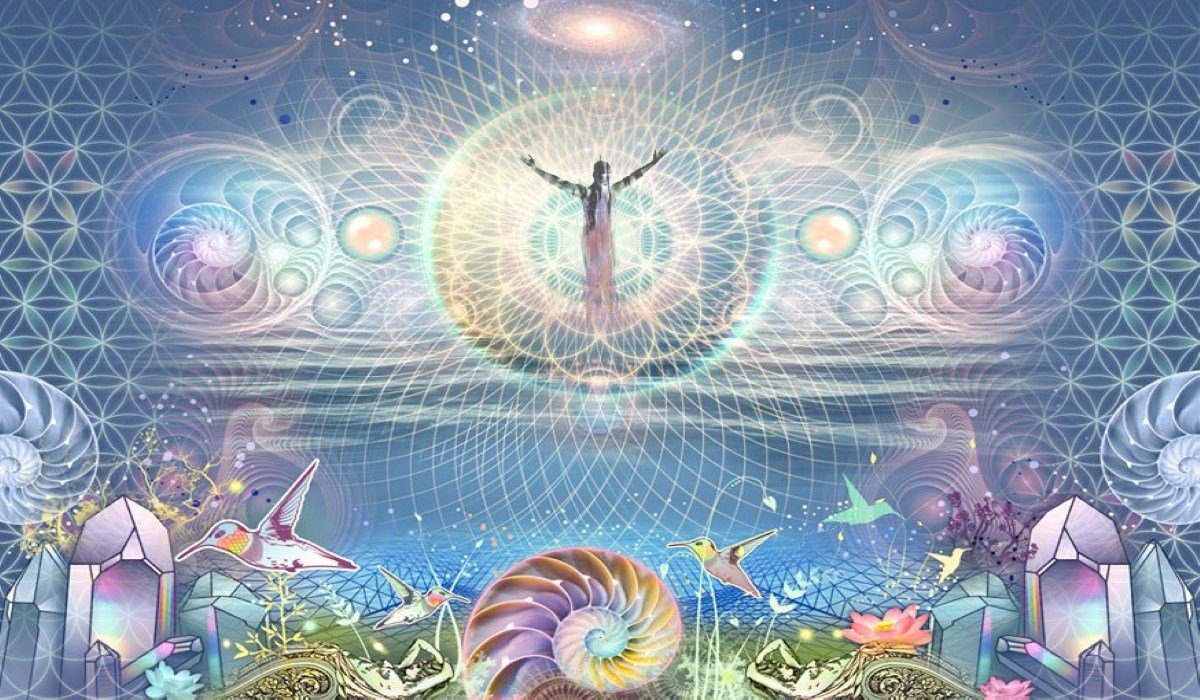As a human being, you are constantly changing and evolving towards the best version of yourself. It is a journey to maturity and spiritual awakening that will require challenges and trials along the way, pushing you out of your comfort zone and facilitating personal growth.
Where are you on this journey?
While some simply view the journey to spiritual awakening as a continuous journey that cannot be compared from one person to another, because they believe that there are no definite milestones on the path that we can predict, others believe that this whole journey – body, mind, and soul – follows a somewhat predictable path that can be applied from person to person.
Although the speed at which you travel this path may vary at different stages in your life, by examining broader periods, experts can predict where you should be, approximately, due to your age.
Consider for a moment who you were when you entered grade one, where the other grade one students were mentally, and then compare that to your physical, mental and spiritual state as you entered grade nine.
Although there are certain parts of the journey that could vary enormously (especially if you focus on a religious journey for example, and your relationship with your God), there are undeniable similarities…
Just look at the physical stature of a 1st-grade student compared to a 9th-grade student. In Grade 9, you start to experience hormonal changes you probably didn’t know existed as a Grade 1 student.
There is a big difference in your book intelligence, of course, but what about your knowledge of life? As you grow, you live more and more in life, learn more about life and, as such, you develop mentally and spiritually.
Perhaps you had your first true love in Grade 9, and afterward, you may also have experienced your first grief. You may have worked your first job (newspaper itinerary? Babysitting?) which taught you important lessons about value for money.
Reflecting on this, the philosopher Rudolf Steiner developed a theory relating to the stages of life, believing that these stages of development could be grouped into periods of 7 years.
Although we can all progress at our own pace in each of these stages, allowing for some individuality and difference in development from person to person, we generally all move from one stage to the next at roughly the same time in our lives. He then went further by comparing these stages to astrological cycles, revealing how the energy of the Universe can impact this development.
Each of these steps is necessary, preparing us for what we will encounter at this point in our lives. If there is one thing we must all recognize, it is that growth and development are not optional.
Anyone looking to be successful in life finding joy, happiness, success and more must first become someone who can live it, as well as the challenges you will have to overcome to achieve it.
The 7 stages of life:
1. 0-7 Years:
The first step in your life will involve significant growth and development. After all, it is undeniable that a 7-year-old child is much more developed in all aspects than a newborn. When we enter this world, we have very little or no real knowledge.
Driven by the biological needs associated with survival, we are absolutely not prepared to manage anything in the world by ourselves. This is why parents play such a vital role in providing for their children, not only physically, but also in providing for their mental and spiritual needs.
It is during the first years that a child learns the basic concepts of love, awareness, consciousness, emotions, creativity, and personality. Each of these will be incredibly important as they continue to grow throughout their lives.
These very impressionable young children lay the foundation for everything they know to be true by learning from their parents, so parents need to set a good example for them.
It is for this reason that children raised by emotionally unstable parents often experience so much difficulty in the following years. It is also the stage of life in which we learn the concept of language and with it the value and power of communication.
2. 7-14 Years:
Although children of this age are still dependent on their parents in many ways, they begin to learn and explore their own abilities. In doing so, they really begin to discover their own personalities, recognizing that they may be different from what their parents may have imposed on them at a younger age.
Physically, children begin to go through puberty, a necessary step from childhood to adulthood. It is often a very uncertain and troubling time in a child’s life because the changes he or she undergoes make them feel embarrassed, vulnerable, and in some cases even frightened.
For this reason, they need their parents to provide them with security and safety to continue learning and growing, rediscovering themselves. Children begin to develop “relationship skills” at this stage, learning to interact with others, both in a positive and a negative context.
3. 14-21 Years:
As we become more aware of ourselves during this stage, this is where we really begin to discover what brings us joy and happiness. We may have participated in various hobbies as a child because our parents encouraged us to do it, and even had fun doing it, but it is at this point where a child then wonders if it is something he will wear in his adult life.
As they develop physically, they will also become more aware of their sexual selves and their sexual attraction, noticing others in a whole new way. At the same time, however, they will also begin to develop their will and self-control with regard to sexual thoughts and feelings.
Faced with a whole new level of independence, individuals at this stage begin to understand their strengths and weaknesses, the first idea of their purpose in life and their personal limits. Much of this growth will be by making mistakes, but it’s how you learn from them that matters most.
Recommended: The 5 Stages of Spiritual Transformation.
4. 21-28 Years:
Although the individual has experienced serious growth in the previous stage, this stage is more regarded as a process of refinement. This is the time of life when you free yourself from your teens and begin to mentally and emotionally prepare for the demands of adulthood.
It can be incredibly overwhelming, and it’s important not to put too much pressure on yourself to get through this step too quickly. There is a good reason why the stages should last 7 years, which gives time to cover them at a more realistic pace. It is at this age that most people begin to really understand and embrace their individual personality, even if it does not meet the standards of society.
It is also the stage where people begin to view relationships and connections as a more lasting partnership, as opposed to just something to bring them joy for a shorter period of time without worrying about the future. As such, they become much more in tune with the needs of their partner as well as their own.
5. 28-35 Years:
Starting to gain confidence in his personality in the previous step, this opens the door to a real exploration of his creativity at this age. It is for this reason that many will make the greatest progress in their careers during this stage of life.
Creativity not only encourages those who work in artistic fields such as painters, musicians, and writers, but it also offers a new way of thinking that can open the door to new solutions to old problems. This can lead to great developments in research, technology and even the way one chooses to handle situations in an office.
This triggers a new way of looking at life as a whole, which can lead to reconsidering their spiritual beliefs. It is important not to fight this, but rather to explore it. This can lead directly back to beliefs established in childhood (but with more conviction of having challenged them) or trigger a complete change – either way, it is an important period of spiritual growth and awareness.
6. 35-42 Years:
Now that we have started to understand each other better and understand the concepts they have learned in life, this is the stage where many feel compelled to start sharing this knowledge with those who are still in the early stages of the journey.
This can lead to hiring a mentor at work, responding to this need through active parenting at home or, if you do not have your own children, taking a child into your family or community”.
It is also at this stage that people begin to look back on their lives and reassess the choices they have made so far. Are they satisfied with their careers? Do their habits always serve them positively? What changes can they make to improve their lives? It is time to reconsider what is used to move one forward and what is holding them back.
7. 42-49 Years:
It is thought to be one of the most dramatic changes we will experience in adulthood, which often leads to what we call a “quarantine crisis”.
People suddenly become aware, due to the incredible introspection of the previous stage, of unfinished dreams, unfulfilled experiences and missed goals throughout their lives. More aware than ever that their time on Earth is limited, they are beginning to wonder if they will ever achieve everything they wanted to accomplish, creating pressure to make things happen now.
Some people will try to relive their youth as if it would somehow help them go back in time. Others will simply become depressed by this revelation.
It is said to be the stage where unconditional love is discovered. It is important to strike a balance between celebrating accomplishments, recognizing areas of future growth and accepting the things that are now behind us.
8. 49-56 Years:
As we begin to enter a period of physical decline, this stage will require us to reconsider the way we look at ourselves and everything we do. This can challenge many of our habits as we try to make changes to extend our lives and keep our young people in any way possible.
For example, you can reconsider your eating habits or try to go out and move more often by joining a walking group. This physical decline will also highlight the inevitability of death, which will once again lead to questioning one’s spiritual beliefs, this time thinking about the concept of death, possible judgment, and the afterlife. This can be an emotional experience which makes it incredibly difficult for some, however, it is necessary.
Recommended: 12 Stages Of Awakening Each Person Has To Go Through Before Enlightenment.
9. 56-63 Years:
As one enters this stage of life, they begin to look back at all the questions of the first stage and find acceptance of what they have discovered. This includes accepting their mortal life, their spiritual beliefs, their current physical state, everything they have accomplished in this life and the mark they leave behind.
This ultimately brings peace and tranquility, as they no longer fight the sands of time, but rather accept them. It is often at this stage that one begins to prepare for a new chapter in life with retirement on the horizon. It is a whole new mindset, which will have an impact on how they see many areas of their lives.
Relationships will be assessed to determine if they provide a true connection to the future, unnecessary responsibilities and worries will be eliminated, and the individual will only look for the things that bring him happiness in life.
10. 63-70 Years:
A deeper acceptance begins to settle at this stage, allowing the individual to look back on his life and take comfort in the many opportunities he has had on the way to grow and change. They will start to really recognize this trip, those who played an important role in it and how it defined them along the way.
It is also the stage where one begins to recognize the differences between them and others around them, embracing these differences rather than fighting them.
They no longer care how others can see or judge them, accept themselves and others, for whom they are unconditional. The relationships that have survived this stage of life will be deeper and more precious than ever, revealing the people who really matter.
At the same time, people at this stage can no longer worry about making sacrifices for people or situations they do not consider important. This is where the stereotype of the “crusty elderly person” begins to develop. However, it is not that they do not care, they are just selective of where they invest their energy.
11. 70-77 Years:
Realizing that life is short, one will begin to really notice and appreciate the intricacies of life at this specific stage. The smallest things can suddenly bring them joy, like the possibility of enjoying a cup of hot coffee or tea with a good friend, or the sight of the rays of the morning sun coming in their window.
This will allow them to really love and appreciate the relationships they still have with their friends and family, which often leads them to want to spend more time with their loved ones now that they have time.
There is also a renewed desire to share their knowledge and experience with others, especially now that they feel like they are starting to really understand all of this. While they can become physically fragile, their spiritual state is stronger than ever.
12. 77-84 Years:
For those who are going through this stage, it brings a “new self”. Looking back on life and everything they have learned over the years, they have a new understanding of who they are, what they have faced, why they have made the choices they have made, and how these choices have helped bring them to where they are today.
This self-awareness is both powerful and soothing, invigorating and peaceful. They accept their mistakes and missed opportunities, tying up the ends in order to avoid carrying any resentment with them to their deathbed. This will help them find more resolution, allowing for an easy transition to death (or the afterlife if it’s believed to be true).








I’m sure many like myself can blow holes through this whole story. Though some are just common sense of stages of growth much is stilled based on this persons growth.
If you don’t have the love and support of loving parents / family your growth for every 7 years is far from the way it is written here.